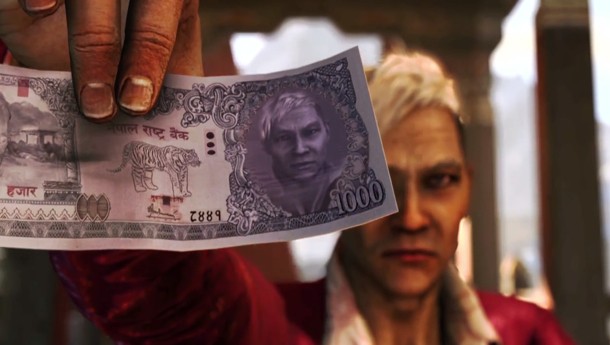Ubisoft And Kinguin Comment On 'Fraudulent' Deactivated Far Cry 4 Codes

If you’ve purchased Far Cry 4 on PC from sites like G2A or Kinguin, you may have found that you no longer have access to the game. Reports like this have been popping up recently on the Ubisoft forums, and the company confirms it is taking action.
“We regularly deactivate keys that were fraudulently obtained and resold,” a Ubisoft representative told us via email, confirming the reports in the forums. “In this case, we are currently investigating the origin of the fraud and will update customers when we have more information to share. In the meantime customers should contact the vendor from whom they purchased their key.”
Fraudulent game keys have been a problem for some time. In March 2014, we reported on a company called 7 Entertainment (which owns Kinguin). The company was reselling codes acquired from Humble Bundle purchases at a markup.
Following our story, 7 Entertainment updated its policies to prohibit the resale of codes purchased via charity events like Humble Bundle. With Kinguin at the center of this latest code problem, we reached out to the company again to find out more.
A representative tells us that the storefront has “one of the lowest fraud rates in the industry.” The company says that all sellers go through a vetting process and the site offers a “100 percent Buyer Protection” guarantee.
“The current case raised by Ubisoft is surely unfair towards the players. The banned game copies in question were acquired through licensed wholesale distributors and as such the origin of the ‘keys’ is the publisher himself,” Kinguin chief marketing officer Bartłomiej Skarbiński told us via email. “From the gamer point of view its like going out to the store, purchasing a copy of the game, taking it home and suddenly a knock-knock on the door with Ubisoft representative taking the copy away - not even asking you as a paying customer to return it.”
Skarbiński questions whether the publisher had the right to deactivate the keys. “We believe Ubisoft had no legal basis for its action,” he tells us. “They did it just because they simply can. Kinguin of course is not going to challenge Ubisoft in court as we are not match up for these giants. We will continue to focus on customer's satisfaction and our customers know we have never let them down.”
Kinguin says that its services are designed to create an environment of “fair pricing” and that the market has a need for them. Skarbiński also raises the frequent topic of consumer rights with regard to reselling digital goods.
“Many big publishers are fighting the customers demands for fair pricing of digital products worldwide,” he says. “The customer's rights for reselling used ‘digital downloaded’ games is also being ignored by large. Its why customers either go for piracy or to alternative services such is Kinguin. It might remind us all with the situation with the music industry in the past decade. We all know how this ended up.”
Our Take
The losers here are the customers. Other than a suspicion about low prices, there is nothing to indicate that a consumer purchased a key deemed illegitimate by the publisher. What we have right now are conflicting stories about the provenance of the keys.
Ubisoft needs to protect itself from piracy and theft, but gamers caught in the crossfire are owed some explanation or warning. Ubisoft and other publishers should post a list of authorized resellers, a warning about purchasing from unauthorized storefronts, and distribute a notice to all customers.
This is becoming a big problem in the industry, and publisher do need to combat illegitimate key dissemination. They just need to do so in a way that is fair for innocent consumers.

Get the Game Informer Print Edition!
Explore your favorite games in premium print format, delivered to your door.
- 10 issues per year
- Only $4.80 per issue
- Full digital magazine archive access
- Since 1991









